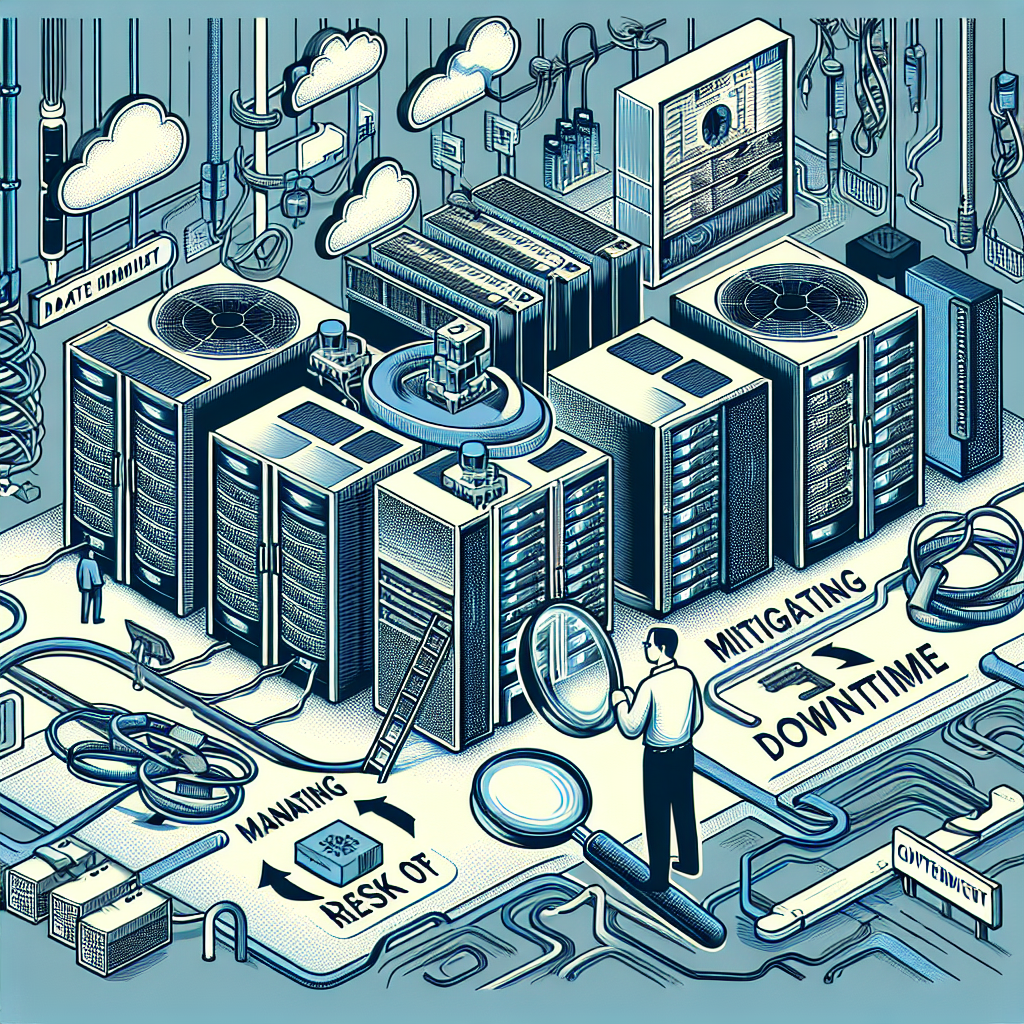Data centers play a crucial role in today’s digital world, serving as the backbone for storing and processing vast amounts of data. Any downtime in a data center can have serious consequences, leading to financial losses, damage to reputation, and potential data loss. Managing risk and mitigating downtime in data centers is therefore essential to ensure smooth operations and minimize disruptions.
One of the key factors in managing risk in data centers is having a robust disaster recovery plan in place. This plan should outline procedures for responding to emergencies such as power outages, hardware failures, natural disasters, and cyber attacks. It should also include regular testing and updates to ensure its effectiveness. By having a well-defined disaster recovery plan, data center operators can minimize the impact of downtime and quickly restore services in the event of an outage.
Another important aspect of managing risk in data centers is implementing redundancy and backup systems. Redundancy involves having backup systems in place to ensure continuous operations in case of hardware failures or other issues. This can include redundant power supplies, cooling systems, and network connections. Backup systems, on the other hand, involve regularly backing up data to offsite locations to prevent data loss in the event of a disaster. By implementing redundancy and backup systems, data centers can reduce the risk of downtime and ensure data availability.
Regular maintenance and monitoring of data center infrastructure are also essential for managing risk and preventing downtime. This includes conducting routine inspections, testing equipment, and monitoring performance metrics to identify and address potential issues before they escalate. By proactively maintaining and monitoring data center infrastructure, operators can prevent downtime and ensure the reliability of their systems.
In addition to technical measures, training and education are also important components of managing risk in data centers. Data center staff should receive regular training on emergency procedures, best practices for data center operations, and security protocols. By ensuring that staff are well-trained and knowledgeable, data center operators can reduce the risk of human error and improve the overall security and reliability of their systems.
Overall, managing risk and mitigating downtime in data centers requires a proactive and comprehensive approach. By implementing a robust disaster recovery plan, redundancy and backup systems, regular maintenance and monitoring, and staff training, data center operators can minimize the risk of downtime and ensure the continuity of their operations. Investing in risk management measures is essential for maintaining the reliability and security of data centers in today’s digital age.


Leave a Reply